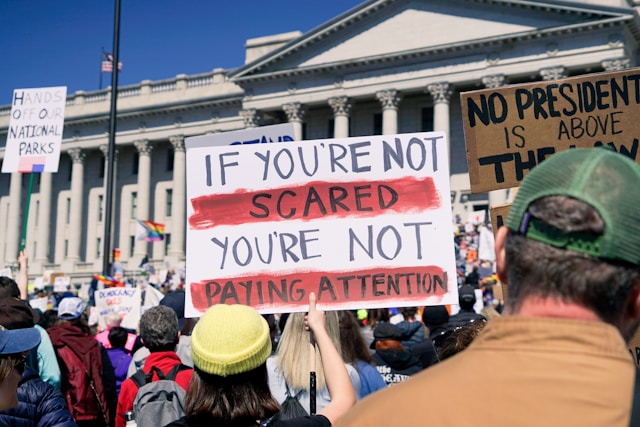Should Presidents Be Allowed to Make Threats Toward Other Politicians?
3 minute readPublished by BNN

In a constitutional democracy, the conduct of the president has profound implications—not only legally, but symbolically and institutionally. Among the most concerning behaviors is the use of threats against other politicians, which raises questions about legality, democratic norms, and presidential responsibility.
Although the U.S. Constitution guarantees freedom of speech, a president’s threats—whether implicit or explicit—should be considered unacceptable. The reason is clear: threats violate both the spirit of the presidential oath and the foundational principles of the democratic system.
The Presidential Oath and Constitutional Duty
Upon taking office, the president swears to "preserve, protect and defend the Constitution of the United States" and to "faithfully execute the Office" (U.S. Const. art. II, § 1, cl. 8). While this oath does not explicitly reference other politicians, it implicitly affirms a duty to respect the institutions, processes, and people who sustain the constitutional order, including political opponents.
Legal scholars note that fulfilling this oath requires the president to act in a manner consistent with democratic norms, including tolerating dissent and safeguarding the independence of other branches of government.
Legal Boundaries: Speech vs. Threats
The First Amendment protects political speech, including harsh criticism. However, it does not protect “true threats”, which are defined as statements meant to communicate a serious intent to commit unlawful violence (Virginia v. Black, 2003).
Additionally, speech that incites imminent lawless action is also unprotected (Brandenburg v. Ohio, 1969). While presidents enjoy wide latitude in expressing opinions, threats that appear to coerce, endanger, or incite violence can—and should—be subject to legal scrutiny.
Historical Precedents
Nixon’s “Enemies List”
President Richard Nixon's administration compiled an “enemies list” of journalists and political opponents. These individuals were targeted for IRS audits and government surveillance. Though Nixon avoided prosecution after his resignation, this abuse of power contributed to public distrust in the presidency.
Trump and the January 6 Insurrection
Following the 2020 election, President Donald Trump attempted to pressure state officials and Vice President Mike Pence to reject certified results. In a speech on January 6, 2021, Trump told supporters to “fight like hell,” after which a mob stormed the U.S. Capitol.
Though the words fell short of an explicit legal threat, the consequences were clear: violence, disruption of a constitutional process, and lasting damage to democratic norms.
Democracy Requires Tolerance of Dissent
At its core, democracy depends on peaceful disagreement and cooperation among rivals. Threats erode these values by intimidating public servants and reducing their ability to perform independent functions. This undermines checks and balances, encourages political violence, and degrades public trust.
The use of threats by the president is not only politically corrosive but risks normalizing authoritarian behavior. Democracies decay when political leaders use power not to govern—but to intimidate.
Conclusion: Respect Is an Obligation, Not an Option
When a president swears to uphold the Constitution, they implicitly promise to respect democratic institutions and those who serve within them. Threats against political opponents are inconsistent with that promise. They violate constitutional spirit, legal norms, and the ethical duties of leadership.
Presidents must remain free to criticize and debate, but never to threaten. In a functioning democracy, power must be exercised with restraint, and disagreement must never be met with intimidation.
References
- Brandenburg v. Ohio, 395 U.S. 444 (1969).
- Dean, J. W. (1976). Blind Ambition: The White House Years. Simon & Schuster.
- Goldsmith, J. (2019). Impeachment Proceedings and the Congressional Oath. Lawfare. https://www.lawfaremedia.org/article/impeachment-proceedings-and-congressional-oath
- Impeachment Trial Memorandum. (2021). U.S. House of Representatives. https://judiciary.house.gov/uploadedfiles/trial_memorandum_of_the_united_states_house_of_representatives.pdf
- U.S. Const. art. II, § 1, cl. 8.
- Virginia v. Black, 538 U.S. 343 (2003).